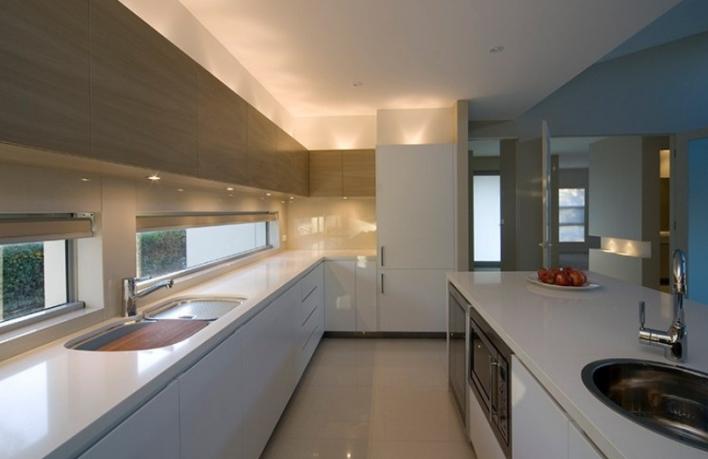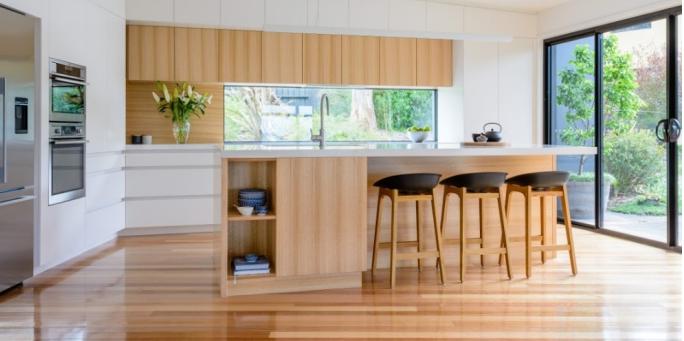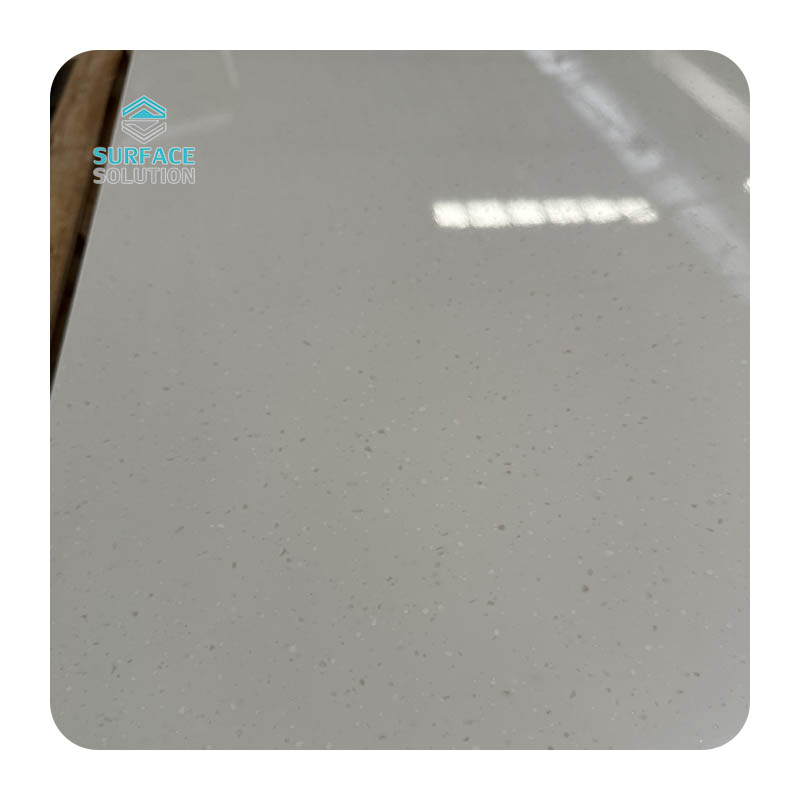In the realm of kitchen design, the choice of countertops serves as a pivotal decision, shaping both the aesthetic appeal and functional efficiency of the space. Among the plethora of materials available, marble and composite countertops stand out as two prominent options, each embodying distinct characteristics that cater to different needs and preferences. This comparative guide delves into the intricacies of marble and composite kitchen countertops, exploring their visual allure, durability, maintenance requirements, and cost implications, empowering homeowners to make an informed choice that aligns with their lifestyle and design aspirations.

Visual Appeal: Aesthetics that Transcend Trends
Marble countertops exude an unparalleled sense of timeless elegance and sophistication, making them a favorite among those seeking to infuse their kitchens with a touch of luxury. The natural veining and variations in color found in marble slabs create a one-of-a-kind, organic pattern that adds depth and character to any kitchen design. Whether it's the classic white Carrara marble with its delicate gray veining or the bold and dramatic Calacatta marble with its striking gold and gray patterns, marble countertops serve as a focal point, elevating the overall aesthetic of the kitchen.
On the other hand, composite countertops offer a wide range of modern and contemporary design options, allowing homeowners to customize their kitchen's look to suit their personal style. Made from a combination of natural minerals, such as quartz, and synthetic resins, composite countertops can mimic the appearance of natural stone, including marble, granite, and limestone. Additionally, composite countertops are available in a vast array of colors, patterns, and finishes, from sleek and glossy to matte and textured, providing endless possibilities for creating a unique and personalized kitchen design.
Durability: Withstanding the Test of Time
When it comes to durability, composite countertops have a clear advantage over marble. Composite materials are engineered to be highly resistant to scratches, stains, and heat, making them an ideal choice for busy kitchens. The non-porous surface of composite countertops prevents the absorption of liquids and bacteria, making them easy to clean and maintain. Additionally, composite countertops are less prone to chipping and cracking compared to marble, making them a more durable option for everyday use.
Marble, on the other hand, is a natural stone that is relatively soft and porous, making it more susceptible to damage. Marble countertops can be easily scratched by sharp objects, stained by acidic substances such as lemon juice and vinegar, and etched by heat. To maintain the beauty and integrity of marble countertops, it is essential to seal them regularly and avoid placing hot pots and pans directly on the surface.

Maintenance: Ease of Care and Upkeep
Composite countertops are known for their low maintenance requirements, making them a popular choice for homeowners who lead busy lives. The non-porous surface of composite countertops can be easily cleaned with a mild soap and water solution, and spills can be wiped up quickly without leaving any stains. Additionally, composite countertops do not require sealing or polishing, saving homeowners time and money on maintenance costs.
Marble countertops, on the other hand, require more extensive maintenance to keep them looking their best. Marble is a porous stone that can absorb liquids and stains, so it is essential to seal it regularly to protect it from damage. Additionally, marble countertops should be cleaned with a pH-neutral cleaner and avoid using abrasive sponges or cleaners that can scratch the surface. To maintain the shine and luster of marble countertops, it may be necessary to polish them periodically.
Cost: Balancing Budget and Quality
The cost of marble and composite countertops can vary depending on several factors, including the type of material, the size of the countertop, and the complexity of the installation. In general, marble countertops tend to be more expensive than composite countertops, due to the natural beauty and rarity of the stone. The cost of marble countertops can range from 200 per square foot, depending on the quality and type of marble. Composite countertops, on the other hand, are generally more affordable than marble countertops, making them a popular choice for homeowners on a budget. The cost of composite countertops can range from 100 per square foot, depending on the brand, quality, and style of the countertop. Conclusion: Choosing the Right Countertop for Your Kitchen
In conclusion, the choice between marble and composite kitchen countertops ultimately depends on your personal style, lifestyle, and budget. If you are looking for a countertop that exudes timeless elegance and sophistication and are willing to invest in regular maintenance, marble may be the right choice for you. On the other hand, if you prefer a modern and contemporary look and value durability and low maintenance, composite countertops may be a better fit. By considering the factors outlined in this comparative guide, you can make an informed decision that will enhance the beauty and functionality of your kitchen for years to come.
Contact us at:
sales7@surface-s.com
+8613316717867
kitchen countertop
solid surface sheets
solid surface sheet material




 The Impact of Solid Surface Counters on Home Resale ValueIn the competitive US residential real estate market, kitchen and bathroom renovations are proven to be the most impactful upgrades for boosting home resale value. Among all renovation elements, countertop materials take center stage—and solid
The Impact of Solid Surface Counters on Home Resale ValueIn the competitive US residential real estate market, kitchen and bathroom renovations are proven to be the most impactful upgrades for boosting home resale value. Among all renovation elements, countertop materials take center stage—and solid Understanding the composition of this material is the first step in answering the question: what is solid surface countertops? Unlike natural stone, which is mined directly from the earth, solid surface is a man-made material. It is engineered primarily from a combination of alumina trihydrate (ATH)
Understanding the composition of this material is the first step in answering the question: what is solid surface countertops? Unlike natural stone, which is mined directly from the earth, solid surface is a man-made material. It is engineered primarily from a combination of alumina trihydrate (ATH) Pairing Wall Colors with Your Solid Surface CounterSolid surface counters are celebrated for their versatility—offering a spectrum of hues, textures, and finishes that anchor kitchen and bathroom design. Yet, their impact is incomplete without complementary wall colors, which tie the space together,
Pairing Wall Colors with Your Solid Surface CounterSolid surface counters are celebrated for their versatility—offering a spectrum of hues, textures, and finishes that anchor kitchen and bathroom design. Yet, their impact is incomplete without complementary wall colors, which tie the space together,












